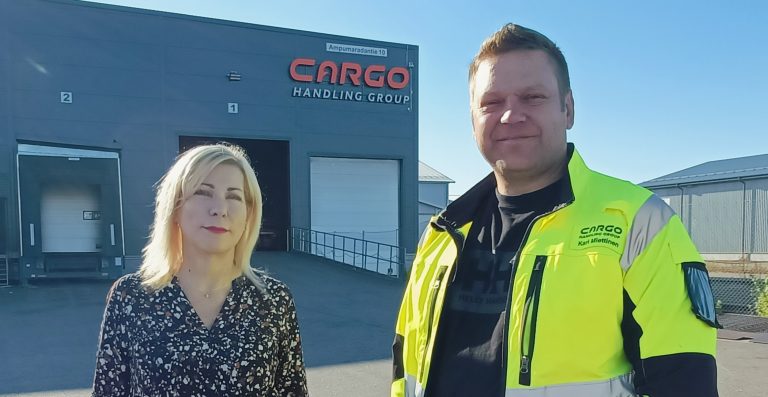Certificates of origin are essential documents in international trade that verify the country of origin of products. They enable the utilization of customs benefits and free trade agreements, which reduce or completely eliminate customs duties. Proper certificates of origin ensure a smooth logistics chain and avoid unnecessary delays at customs. Here, we address the most important questions about certificates of origin, their acquisition, and significance in international logistics.
What Certificates of Origin Are Required in International Trade?
Several different certificates of origin are used in international trade, depending on the destination country and trade agreements. The most common ones include EUR.1, A.TR, declaration of origin, and GSP certificate. Each serves a specific purpose depending on the trading partner countries and the agreements between them.
The EUR.1 certificate is required for trade between the EU and its free trade partners. It enables the utilization of customs benefits in trade with countries such as Norway, Switzerland, and many Mediterranean countries. The A.TR certificate is used in trade between the EU and Turkey in accordance with the customs union agreement.
A declaration of origin can be prepared on the commercial invoice by an authorized exporter, which simplifies the process and often replaces the EUR.1 certificate. The GSP certificate (Form A) enables customs benefits for goods imported from developing countries to the EU market.
In addition to these, certificates of origin issued by chambers of commerce are often required in trade with countries outside the EU, especially in Middle Eastern and Asian markets. Using the correct certificates is essential to ensure smooth trade and cost-effective logistics.
How Do Certificates of Origin Affect Customs Duties and Trade Flow?
Certificates of origin can significantly reduce or completely eliminate customs duties on products in the destination country. For example, with an EUR.1 certificate, an exporter can save 5-15% in customs duties in EU free trade partner countries. This price advantage makes products more competitive in target markets.
Proper certificates of origin expedite customs clearance and the movement of goods between countries. Incomplete or incorrect certificates can lead to shipments being held at customs, causing delays and additional costs. Thus, these certificates directly impact the reliability and efficiency of the entire supply chain.
Certificates of origin can also prove the origin of products in situations where import restrictions or special requirements of the destination country necessitate it. This is particularly important in sectors with country-specific regulatory requirements, such as the food and pharmaceutical industries.
We offer forwarding services that help our customers ensure the use of correct certificates of origin and maximize customs benefits. Our experienced specialists are familiar with the requirements of different countries and help optimize international trade costs.
How to Obtain Certificates of Origin Correctly and Efficiently?
The process of obtaining certificates of origin begins with determining which certificate is applicable to the specific trade transaction. EUR.1 and A.TR certificates are obtained from Customs, while certificates of origin from chambers of commerce are issued by the local chamber of commerce. Authorized exporters can prepare a declaration of origin directly on the commercial invoice.
The application process requires accurate information about the origin and manufacturing of the product. The exporter must be able to prove that the product meets the rules of origin. This may require collecting information from the entire production chain and subcontractors, so it’s advisable to allocate sufficient time for the process.
Digital application systems, such as online services of Customs and chambers of commerce, have significantly improved the application process. Electronic applications are usually processed faster than paper ones and reduce the possibility of errors.
The most common mistakes include incomplete product information, incorrect customs tariff codes, and misinterpretation of rules of origin. Expert forwarding services help avoid these pitfalls and ensure that certificates are correctly completed and acceptable in the destination country.
What Problems Can Arise from Inadequate Certificates of Origin?
Incomplete or incorrect certificates of origin can lead to serious problems in international trade. The most common consequence is goods being held at customs, causing delays in deliveries. This can lead to contractual penalties, storage costs, and deterioration of customer relationships.
Due to incorrect certificates, customs benefits may be lost, resulting in full customs duties being paid on products. At worst, this can make the trade unprofitable. Additionally, authorities may impose fines or other sanctions for providing false information.
Typical challenges also include delays in obtaining certificates or their loss during transportation. Therefore, it’s important to start the procurement process on time and ensure proper handling of documents throughout the supply chain.
A key factor in preventing problems is a skilled partner who knows the rules and practices of international trade. Our forwarding services include comprehensive support in obtaining and managing certificates of origin, which minimizes risks and ensures smooth trade.
In the complex world of international logistics, correct certificates of origin are the key to cost-efficiency and smooth processes. Expert assistance in obtaining and managing certificates saves time, money, and effort – contact us and we’ll tell you how we can help your company’s international trade.
Related Articles
- How Does the Paper Industry Benefit from Buffer Inventories at Container Terminals?
- Bulk Cargo Handling in Port Terminals: Processes and Technologies
- How do transport documents affect the efficiency of the international supply chain?
- Efficient Terminal Services in the Port of HaminaKotka: Logistics Chain Optimization
- Modern Port Services and Their Impact on Supply Chain Management







